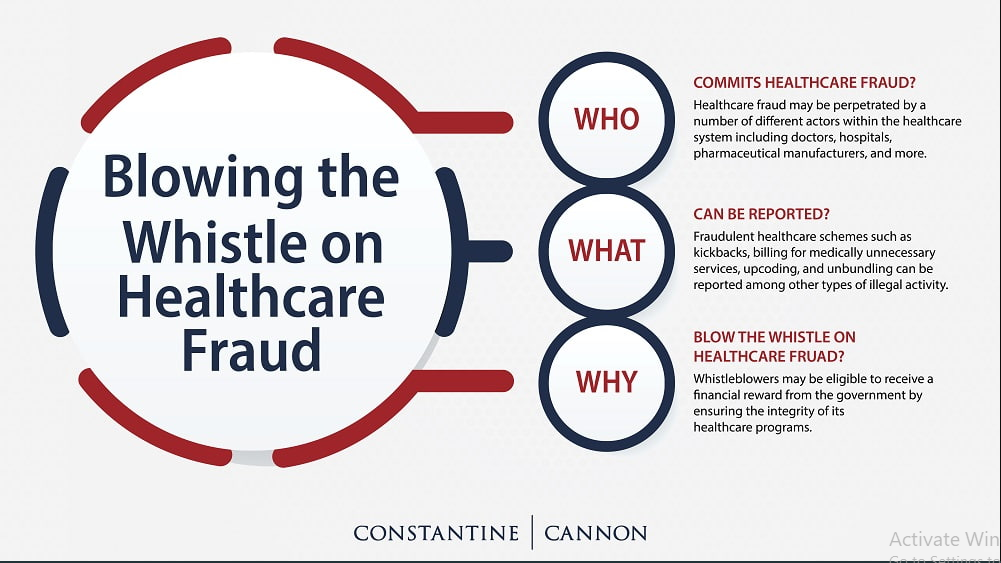The role of whistleblowers in ensuring drug manufacturing compliance is critical for maintaining the safety and efficacy of medications. Whistleblowers are individuals who report illegal or unethical activities within their organization, often at great personal risk. In the pharmaceutical industry, whistleblowers play an important role in identifying and reporting violations of drug manufacturing laws and regulations.
Read More: Attorney Marcy Resnik
Whistleblowers can bring attention to a wide range of issues related to drug manufacturing compliance, including issues with quality control, safety, and regulatory compliance. They may report on issues such as substandard manufacturing practices, falsified data, or violations of environmental regulations. By speaking out, whistleblowers can help to prevent harm to patients and ensure that medications are produced and distributed safely and effectively.
Whistleblowers can report violations of drug manufacturing compliance to a variety of organizations, including regulatory agencies, law enforcement, and the media. However, the decision to blow the whistle can be difficult, as whistleblowers often face retaliation from their employers. This may include harassment, termination, or other forms of retaliation.
Types of violations reported by whistleblowers
Whistleblowers play a critical role in identifying and reporting violations of drug manufacturing laws and regulations. By speaking out about unethical or illegal practices, whistleblowers can help to protect patient safety and ensure that medications are produced and distributed safely and effectively. There are many types of violations that whistleblowers may report in the pharmaceutical industry, including:
Quality control issues: Whistleblowers may report on issues related to quality control, such as poor manufacturing practices or the use of substandard materials. These issues can lead to ineffective or unsafe medications and can pose a serious risk to patient health.
Falsified data: Whistleblowers may report on the falsification of data related to drug testing or manufacturing. This may include the manipulation of test results or the concealment of negative data.
Environmental violations: Whistleblowers may report on violations of environmental regulations, such as improper disposal of hazardous materials or the release of pollutants into the air or water.
Regulatory non-compliance: Whistleblowers may report on violations of regulatory requirements, such as failure to follow Good Manufacturing Practices (GMP) or failure to report adverse events related to medications.
Patent violations: Whistleblowers may report on violations of patent laws, such as the production of generic medications that infringe on existing patents.
Financial fraud: Whistleblowers may report on financial fraud, such as the submission of false claims for reimbursement or the misappropriation of funds.
Conflict of interest: Whistleblowers may report on conflicts of interest, such as the acceptance of bribes or other forms of payment in exchange for favorable treatment or the promotion of certain medications.
Ethical violations: Whistleblowers may report on ethical violations, such as the use of unethical or illegal practices in clinical trials or the manipulation of study results.
Also Read More: Impact of Political and Social Factors on Drug Manufacturing Laws
Legal protections for whistleblowers
Whistleblowers play a critical role in exposing wrongdoing in many industries, including the pharmaceutical industry. However, whistleblowers often face retaliation from their employers for speaking out, such as harassment, termination, or other forms of retaliation. To protect whistleblowers and encourage them to report violations of drug manufacturing laws and regulations, many countries have laws and regulations in place that provide legal protections for whistleblowers.
In the United States, for example, the False Claims Act (FCA) and the Whistleblower Protection Act (WPA) provide legal protections for whistleblowers who report violations of drug manufacturing laws and regulations. The FCA allows whistleblowers to file lawsuits on behalf of the government if they have evidence of fraud against the government, such as the submission of false claims for reimbursement. The whistleblower can receive a percentage of any money recovered by the government as a result of the lawsuit. The WPA, on the other hand, protects federal employees from retaliation for reporting violations of law or regulations.
Other countries, such as the United Kingdom, Australia, and Canada, also have laws in place to protect whistleblowers. These laws generally provide protections against retaliation, such as termination, demotion, or harassment, and may also provide for compensation or damages in cases of retaliation.
In addition to legal protections, many companies have internal reporting systems in place to encourage employees to report violations of law or regulations. These systems may include hotlines or other confidential reporting mechanisms. Companies may also have policies in place to protect whistleblowers from retaliation and to investigate any claims of retaliation that are reported.
Despite these legal protections and internal reporting systems, whistleblowers still face many challenges and risks when reporting violations of drug manufacturing laws and regulations. Whistleblowers may face social isolation, damage to their reputation, and difficulty finding new employment after speaking out. As a result, it is important for companies and regulatory agencies to take whistleblowers seriously and to protect them from retaliation.
